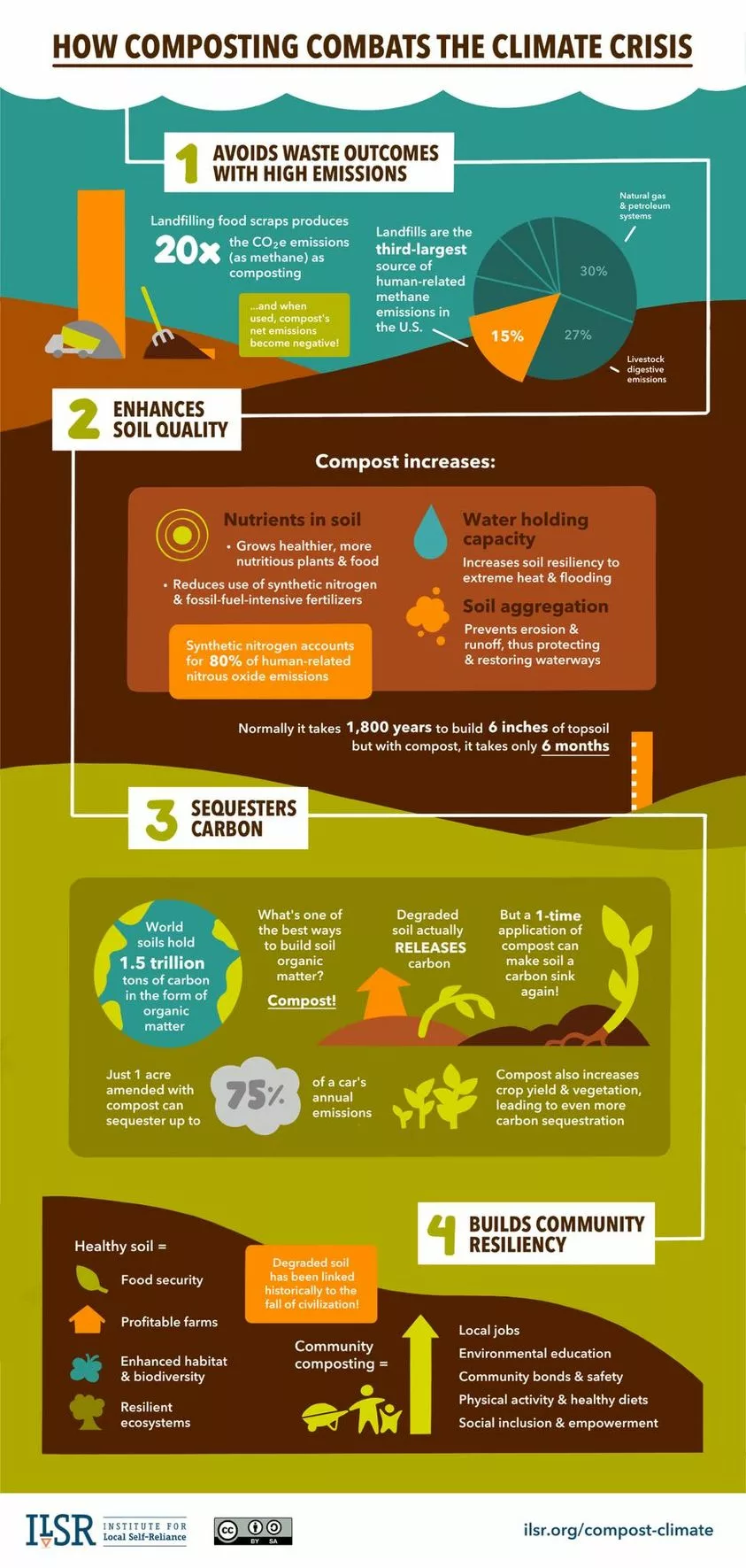
Composting is a natural process that can help to combat the climate crisis in a number of ways. Here are some of the key benefits of composting:
Reduces greenhouse gas emissions: When food scraps and yard waste decompose in landfills, they release methane, a potent greenhouse gas. Composting, on the other hand, converts these organic materials into nutrient-rich soil amendments, which can then be used to grow plants. Plants absorb carbon dioxide from the atmosphere during photosynthesis. When we use compost to grow food, we can help to offset the greenhouse gas emissions that would have been released if the organic materials had been sent to a landfill.
Improves soil health: Compost adds organic matter to soil, which helps to improve its structure, water retention, and nutrient-holding capacity. This can lead to healthier plants and increased crop yields. Healthy soil can also sequester more carbon, which can help to further mitigate climate change.
Reduces reliance on synthetic fertilizers: Compost can replace or reduce the need for synthetic fertilizers, which can contribute to water pollution and greenhouse gas emissions. Synthetic fertilizers are also often made from fossil fuels, which further contributes to climate change.
Promotes sustainable agriculture: Composting is a key practice in sustainable agriculture. It can help to reduce the environmental impact of farming and improve soil health and crop yields.
Creates a valuable resource: Compost is a valuable resource that can be used to improve soil health, reduce the need for synthetic fertilizers, and promote sustainable agriculture. It can also be used to create aerated compost tea, which can be used as a natural fertilizer and soil amendment.
Here are some additional ways that composting can help to combat the climate crisis:
- Compost reduces the need for landfills, which are a major source of methane emissions.
- Compost can be used to create a more resilient food system, which can better withstand the impacts of climate change.
- Composting is a simple and easy way to make a difference in the fight against climate change.
If you are looking for ways to reduce your environmental impact and combat climate change, composting is a great place to start. It is a simple and effective way to reduce greenhouse gas emissions, improve soil health, and promote sustainable agriculture.
